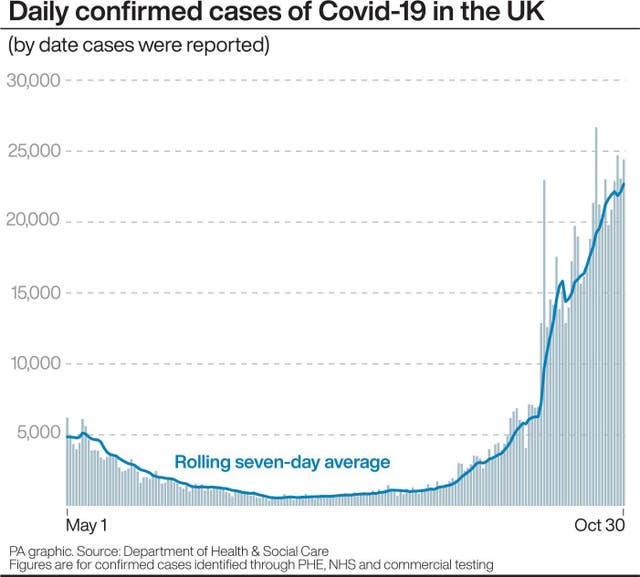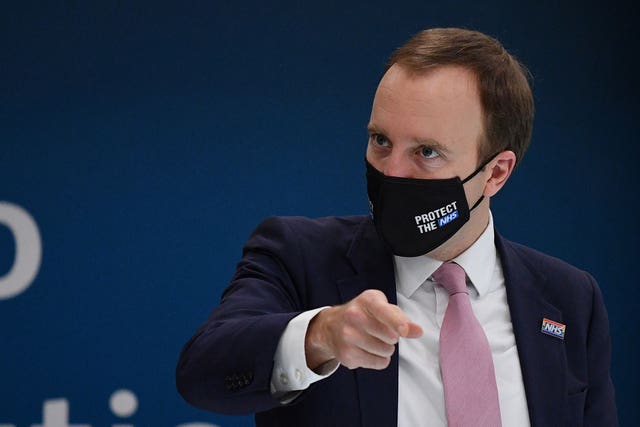What is likely with a national lockdown?
Reports say Boris Johnson will announce the measure for England on Monday.

England is set to go into a nationwide lockdown next week as a way of combating a second wave of the coronavirus, according to reports.
Here, we look at what the public can expect.
– Is there going to be a national lockdown?
Prime Minister Boris Johnson is expected to announce on Monday a nationwide lockdown for England which could come into force on Wednesday and last until December 1, according to The Times.
Earlier reports on Friday suggested harsher restrictions than the existing tier system could be imposed, but meetings between the PM, ministers and health experts decided on the need for a more stringent move.
A national lockdown still needs to be signed off on by Cabinet, but it appears likely to be approved.

– Why do we need this now?
It has become clear in recent weeks that Covid-19 is now spreading faster than the worst predictions of scientists.
The Office for National Statistics (ONS) infection survey found cases “continued to rise steeply” in the week ending October 23, with an estimated 568,100 people becoming infected.
Government scientists now believe at least 50,000 new cases of Covid-19 are occurring in England daily, and deaths could reach 500 per day within weeks.
They believe it is now too late for a two-week national circuit-breaker to have enough of an effect, that Tier 3 restrictions are not sufficient, and that a longer national lockdown is required to drive the reproduction number, or R value, of the virus below one.
A recent meeting of the Scientific Advisory Group for Emergencies (Sage) found the rate of infections and hospital admissions was now “exceeding the reasonable worst-case scenario planning levels”.
– What will the national lockdown look like?
In March, non-essential businesses such as restaurants, beauty services, cinemas and gyms were forced to close and it is likely to be similar a second time around.
But unlike the spring, this time it is thought that educational facilities including schools, nurseries and universities will remain open alongside essential shops.
– Is England alone in locking down?
No. Second waves are hitting hard in various countries.
France, Germany and Belgium this week announced national lockdown restrictions. President Emmanuel Macron said France was in danger of being “overwhelmed” by a second wave that would be “harder than the first”. German Chancellor Angela Merkel warned of a long, hard winter ahead.
European Commission president Ursula von der Leyen said the continent was “deep in the second wave”. Countries such as Poland and the Czech Republic, which were not too badly affected the first time around, are now suffering sharp increases in infection rates.

– Are nationwide lockdowns effective?
It appears so. The UK, Italy, Spain and France imposed national lockdowns when badly hit by the first wave. They were able to ease restrictions in early summer, including reopening travel involving countries on “safe” lists, but this was followed by rises in cases in the late summer, which have now increased dramatically, bringing the push for the lockdowns to be re-imposed.
– Are scientists any closer to a vaccine?
Pharmaceutical companies continue to work to find a vaccine.
While it is difficult to predict when one will be available, the head of the UK’s vaccine taskforce, Kate Bingham, this week told The Guardian there was a glimmer of hope one of the leading candidates could be approved by Christmas.





